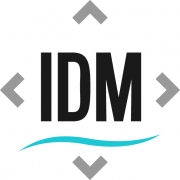ERASMUS+ Internationales Danube-Camp für Kids von 13-14,5 Jahren
ERASMUS+ Internationales Danube-Camp
- Juli bis 11. August 2019 in Tulln an der Donau
für Kinder von 13 bis 14 Jahren
mit Übernachtung und Vollpension
um € 180
Ein Danube-Camp mit vielfältigen Aktivitäten (siehe auch die Beilage):
Die Kinder erfüllen insgesamt 10 „Missions“ in 6-er Teams: sie kochen, tanzen, musizieren gemeinsam, verkleiden sich als Donaumonster, basteln Roboter, studieren die Natur, lernen Witze und Wörter aus anderen Sprachen, bauen Schiffsmodelle, die dann mit 3D-Druckern verwirklicht werden, drehen Videos und können danach verantwortungsvoll mit dem Internet umgehen. An den „freien“ Tagen wird gebadet, gespielt, gepaddelt und die Umgebung erkundet.
Die Organisatoren wünschen sich, dass die Kinder sie mit ihren Ideen überraschen, dass sie im Team arbeiten, dass sie neue Freundschaften schließen, dass sie selbstständiger werden, und nachher noch lange viel Schönes und Interessantes vom Danube-Camp erzählen.
Das Camp findet statt im schönen und gut ausgestatteten „Junge Hotel Tulln“.
Verbilligter Kostenbeitrag € 180 für 15 Tage Übernachtungen mit Vollpension (Buffets) von abends 27. Juli bis morgens 11. August 2019.
Das Betreuungsverhältnis: jeweils 5 Kinder mit einem Betreuer.
Die Kinder kommen aus Österreich, Serbien, Bulgarien, Ungarn – lernen sich kennen und schließen neue Freundschaften.
Ein wenig Englisch ist von Vorteil.
Das Camp wird im Namen des „Instituts für den Donauraum und Mitteleuropa“ vom Verein „International Cultural Communication“ organisiert und von ERASMUS+ finanziell unterstützt.
Kontakt und Anmeldung bei DI Peter Rebernik – office@danube-camps.net
Website: www.danube-camps.net
- Beginn: Samstag, 27. Juli 2019
- Ende: Sonntag, 11. August 2019
- Ort: Tulln an der Donau
- Auskunft: DI Peter Rebernik
- E-Mail: office@danube-camps.net


